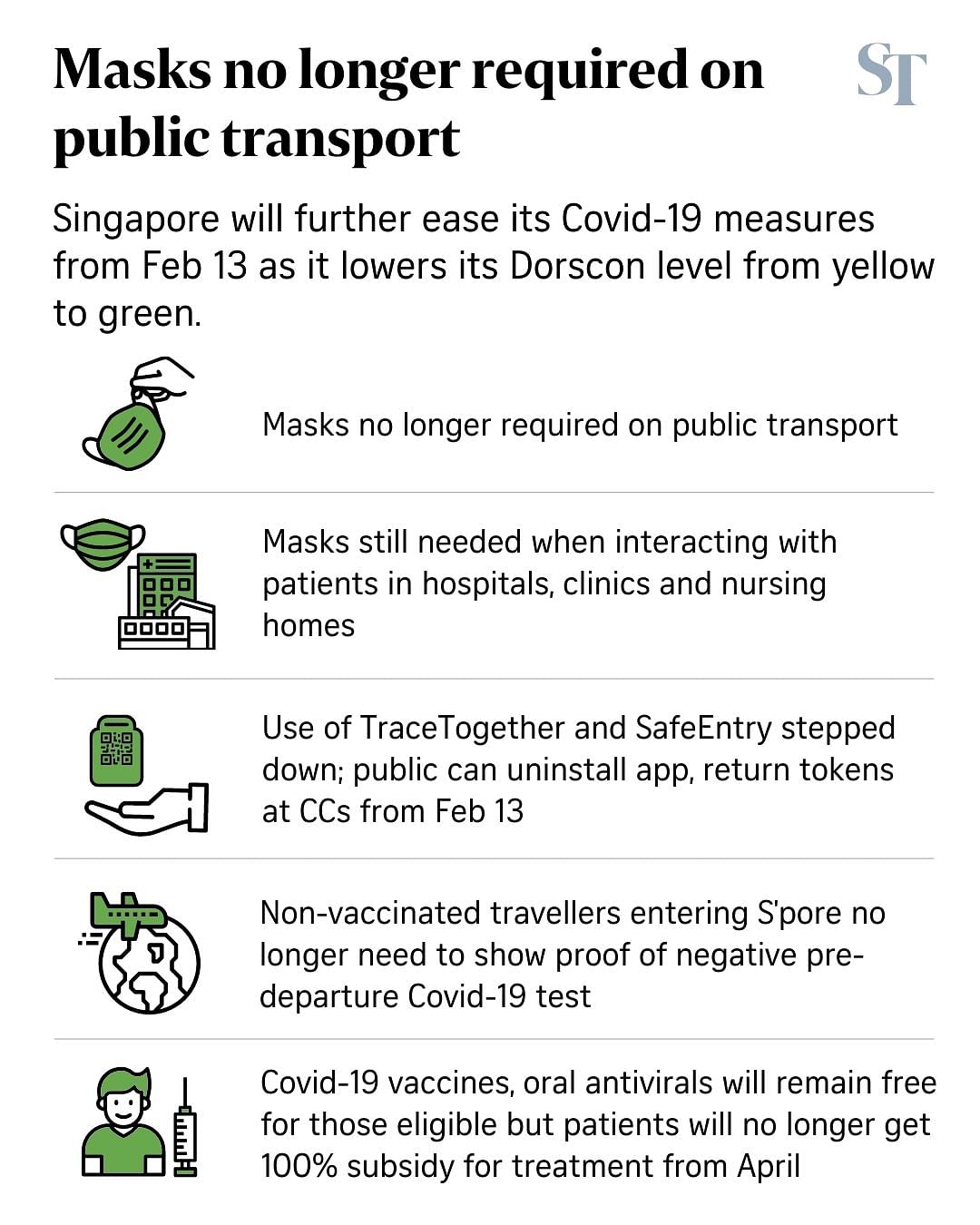SINGAPORE – Covid-19 vaccination under the National Vaccination Programme will continue to be free, but treatment and testing for the virus will no longer be fully subsidised.
All Singapore citizens, permanent residents (PR), long-term pass holders and some short-term pass holders will continue to be offered Covid-19 vaccination at no cost, the Ministry of Health (MOH) said on Thursday, noting in a statement: “Vaccination remains our first line of defence against Covid-19.”
MOH said: “Our high vaccination rates have been pivotal to enable us to weather successive waves of Covid-19 infections, build up our societal resilience, protect our healthcare system and arrive at the endemic Covid-19 norm today.”
While vaccination is free, those who require treatment for the viral illness and its complications will no longer receive a 100 per cent subsidy at hospitals or Covid-19 treatment facilities from April. This is regardless of their vaccination status, MOH added.
“Instead, our regular healthcare safety nets, namely, government subsidies, MediShield Life and MediSave will apply.
“We wish to assure lower-income Singaporeans that financial assistance will be available to ensure that healthcare cost remains affordable,” MOH said.
Health Minister Ong Ye Kung said at a media conference on Thursday: “Testing and treatment throughout have been provided generally free of charge or at a very low fee for practically all residents, given that Covid-19 was an unfamiliar disease.
“It was important that we removed the uncertainties and concerns on the cost of testing and treatments. We have maintained that policy for almost three years.”
He added that as Singapore moves towards living with the disease, the Government will also need to move to a new set of financing arrangements and cannot continue with 100 per cent subsidies.
MOH’s statement also said people with Covid-19 will no longer need to be housed in community isolation facilities, just like for other endemic diseases such as influenza or chicken pox.
“Nevertheless, we will maintain some facilities for Covid-19 patients who want to self-isolate for valid reasons,” it said.
All occupants will be charged for their stay, and as such facilities are not classed as medical facilities, citizens and PRs will not be able to tap government subsidies, MediShield Life or MediSave to pay their bills, MOH said.
All patients will be required to pay for any Covid-19 testing, subject to prevailing subsidies, the ministry added.
But these patients could get other support at no cost, besides Covid-19 vaccinations.
MOH said: “Additionally, patients with a higher risk of severe Covid-19, such as the immunocompromised and individuals with some comorbidities, may be referred by their doctors for free telemedicine support.”
Mr Ong added that MOH is exploring making all nationally recommended vaccines free under the Healthier SG initiative.
While Covid-19 vaccines are not currently nationally recommended shots, if they are added to the programme, they could become permanently free, he said.

Who should take which jab, and when?
The statement also carried updated vaccination guidelines:
1. Everyone aged five and above should achieve “minimum protection” – referring to three doses of mRNA or Novavax/Nuvaxovid vaccine, or four doses of Sinovac-CoronaVac vaccine.
2. Those aged 60 and above, medically vulnerable people, and residents of aged care facilities are recommended to have a booster shot about a year after their last booster dose.
MOH said: “We urge them to receive their booster dose this year when they become eligible for it.”
3. Those aged between 12 and 59 who are healthy have a lower risk of severe disease, but a booster around one year after their last booster dose will be offered to enhance protection.
4. Children aged five to 11 should achieve “minimum protection”, but they are not recommended or eligible for additional doses at this time.
5. Children aged six months to four years should still complete two doses of Moderna/SpikeVax or three doses of Pfizer-BioNTech/Comirnaty. They are not recommended nor eligible for additional doses at this time.
READ NEXT: No masks on public transport: 6 things you need to know as S’pore lifts Covid-19 rules


